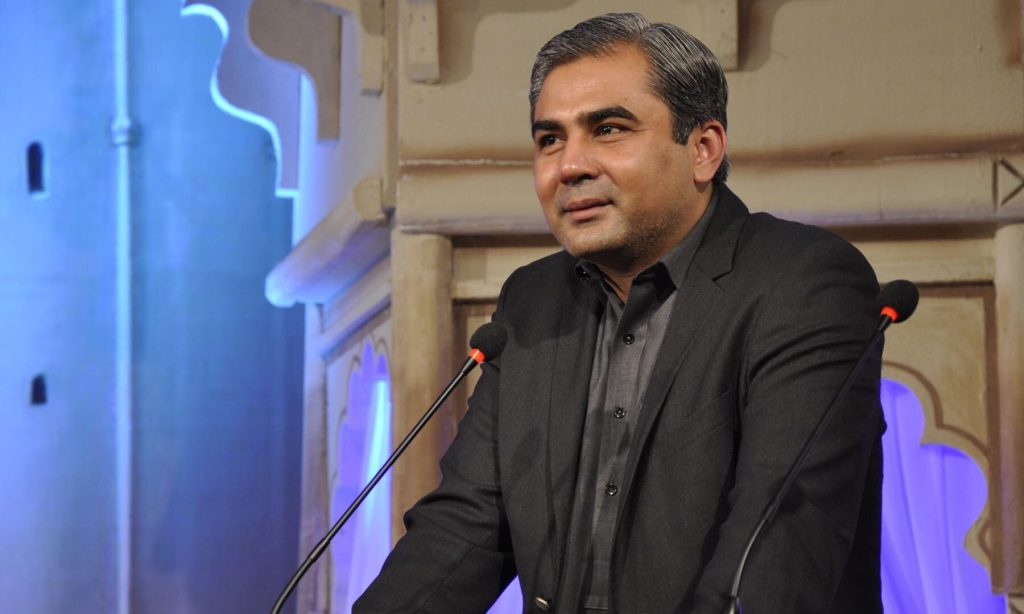Syed Mohsin Raza Naqvi is a notable figure in Pakistan’s media and political landscape, known for his diverse career route and influential roles. Right now, he is a senator and has served as the Interior Minister of Pakistan since 11 March 2024 and the chairman of the Pakistan Cricket Board since 6 February 2024.
From his early beginnings in journalism to his current position as a federal minister, Naqvi’s journey reflects both professional achievements and public controversies.
Career Journey and Media Contributions
Mohsin Naqvi began his professional career in the media industry. After earning a degree in journalism from Ohio University, he worked as a producer for CNN, covering critical events in South Asia, including the global War on Terror. His experience with international media allowed him to hone his journalistic skills and build a reputation in the field.
In 2009, Naqvi took a significant leap by founding City News Network, which owns several prominent TV channels and a newspaper. Under his leadership, the network gained recognition for its extensive news coverage and diverse programming. His work in media positioned him as a powerful player in Pakistan’s information landscape, paving the way for his entry into politics.
Educational Background and Qualifications
Naqvi’s educational journey began at Crescent Model Higher Secondary School in Lahore. He later attended Government College University (GCU), Lahore, before pursuing higher studies in the United States. At Ohio University, he specialized in journalism, equipping him with the skills to navigate the dynamic world of media and communication.
Political Rise and Current Roles
In his political career, Mohsin Naqvi currently holds the position of Federal Minister for Interior and Narcotics Control. His responsibilities include overseeing internal security and managing narcotics control policies. In addition to his ministerial duties, he serves as the chairman of the Pakistan Cricket Board (PCB), balancing both roles concurrently.
Stance on PTI Protests
Naqvi’s handling of the Pakistan Tehreek-e-Insaf (PTI) protests has drawn considerable attention. He has maintained a firm stance on maintaining law and order, emphasizing the importance of peace and stability. Naqvi praised law enforcement agencies for their efforts in dispersing protesters and has been vocal about his unwillingness to negotiate with protestors, citing their use of violence and disruption of public life. His approach has been both praised and criticized, reflecting the complexities of managing such situations in a volatile political environment.
Controversies and Public Criticism
Throughout his career, Naqvi has faced several controversies. In 2009, he was accused of accepting bribes in connection with the acquittal of the Haris Steel Mills owner in a fraud case. More recently, his handling of PTI protests has come under scrutiny, with accusations of using excessive force. Despite these challenges, Naqvi has remained steadfast in his public roles, often defending his actions as necessary for maintaining order.
Personal Life and Background
Born on October 28, 1978, in Lahore, Punjab, Mohsin Naqvi experienced a challenging upbringing. Orphaned at a young age, he was raised by his maternal uncle. He is married to Nighat Naqvi and is a father to three children. Despite his public profile, Naqvi tends to keep his personal life private, occasionally sharing family moments on social media.
Legacy and Public Image
Mohsin Naqvi’s career is marked by a transition from media mogul to a significant political figure. His contributions to journalism and media, along with his current political responsibilities, highlight a dynamic and multifaceted career. While controversies have shaped his public image, his firm stance on law and order continues to influence his approach to governance.
Naqvi’s journey reflects a blend of professional success, political challenges, and whole lot of controversies that never leave his sight. As he navigates his dual roles in government and sports administration, his influence on Pakistan’s political and social landscape remains significant, whether we like it or not.

